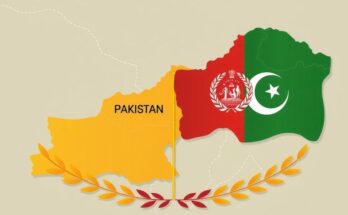Tropical Cyclone Chido made landfall in Mozambique on December 15, bringing devastating winds and heavy rainfall. Early estimates suggest up to 2.5 million people may be affected, particularly in Cabo Delgado and Nampula Provinces. Emergency response initiatives are being mobilized by the Mozambique Red Cross to provide assistance in the most impacted areas.
On December 15, Tropical Cyclone Chido made landfall in Cabo Delgado Province, Mozambique, specifically near the border with Nampula Province, and close to Pemba. Classified as a category 4 cyclone, it generated winds exceeding 200 km/h and gusts reaching up to 250 km/h. Severe weather commenced at approximately 3 AM local time, leading to expectations of heavy rainfall in various districts, notably in Mecu, Metuge, Ancuabe, and the City of Pemba. Early estimates suggest that as many as 2.5 million people could have been affected by these adverse conditions.
The National Institute of Meteorology (INAM) has warned of catastrophic rainfall totals, forecasting accumulations of up to 250 mm over 24 hours. The cyclone’s intense winds can lead to widespread destruction, while excessive rains pose risks of flooding and landslides across the region. Communities situated near coastlines, as well as inland, are particularly vulnerable to storm surges and flooding impacts. Current communications in Pemba have been disrupted, although some electricity remains functional in certain areas.
The Mozambique Red Cross has submitted a DREF application, enabling them to initiate response efforts in the most heavily impacted regions, particularly in Cabo Delgado and Nampula Provinces. The districts most affected include Cabo Delgado districts of Ancuabe, Balama, and Chiure, with an overall exposed population of 1.5 million. In Nampula, districts such as Erati and Lalaua also face significant threats, affecting a total of approximately 730,000 residents. Furthermore, Niassa Province’s districts, including Cuamba and Marrupa, have an estimated exposed population of 215,000 individuals.
Tropical Cyclone Chido represents a significant weather event impacting Mozambique’s coastal regions. The geography of areas such as Cabo Delgado and Nampula, along with their proximity to the Indian Ocean, renders them susceptible to tropical storms. Cyclones in this region historically result in severe local impacts, including property damage and loss of life, thus necessitating urgent humanitarian responses. Understanding the cyclone’s effects is critical for relief organizations as they assess damages and plan effective responses.
In summary, Tropical Cyclone Chido has significantly impacted Mozambique, particularly in Cabo Delgado and Nampula Provinces. The cyclone’s intense winds and heavy rainfall are expected to result in severe damage and pose threats of flooding and landslides. The Mozambique Red Cross is proactively engaged in emergency response efforts. The scope of the potential affected population highlights the urgent need for humanitarian assistance in the region.
Original Source: reliefweb.int




